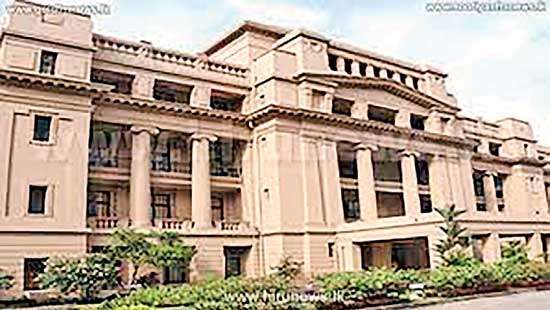Reply To:
Name - Reply Comment


Sri Lanka’s nine-month government revenue this year rose compared to last year’s levels, as the economy inflated amid the runaway prices and tax revenue started flowing, as a result of the hike in the indirect taxes such as the Value Added Tax (VAT), under the first round of tax increases came into effect from June.
The fiscal data from the Treasury published by the Central Bank showed that the government had collected a total revenue of Rs.1,450.4 billion in the nine months, compared to Rs.1,052.2 billion in the same period last year when the economy was operating under a low-tax regime and lockdowns, due to virus flare-ups.
A large section of economists and analysts attributes the economy’s collapse to the deep tax cuts delivered in late 2019 to provide fiscal stimulus to the then moribund economy, after four years of continuous decline before entering into a contraction in 2019.
They said the tax cuts, which were uncalled for, created a massive fiscal hole in the budget, which was then financed with unprecedented monetary financing or money printing in common parlance, although there exists some subtle differences between the two.
Sri Lanka’s economy crashed this year predominantly, due to the country losing its ability to provide foreign currency for its imports, as it ran out of its dollar reserves, after losing at least US $ 20 billion worth of foreign inflows, including US $ 9 billion from tourism in 2020 and 2021 together. The situation was exacerbated by the rising global commodities prices, due to exogenous factors.
Sri Lanka recorded a US $ 4.0 billion deficit in its balance of payments in 2021.
Meanwhile, the fiscal data through November showed that the total expenditure and net lending increasing to Rs.2,694.8 billion, compared to Rs.2,380.4 billion in the comparable period in 2021.
As a result, the budget deficit for the nine-month period came in at Rs.1,244.4 billion, little below Rs.1,328.2 billion recorded in the same period last year.
Sri Lanka expects to end the current fiscal year with a budget deficit of Rs.2,333 billion or 9.8 percent of gross domestic product (GDP), the third consecutive year of blowout deficits, before cutting it to 7.9 percent of GDP in 2023, as the government raised taxes and slapped new taxes to raise revenues to narrow the deficit towards 3.5 percent by 2025.